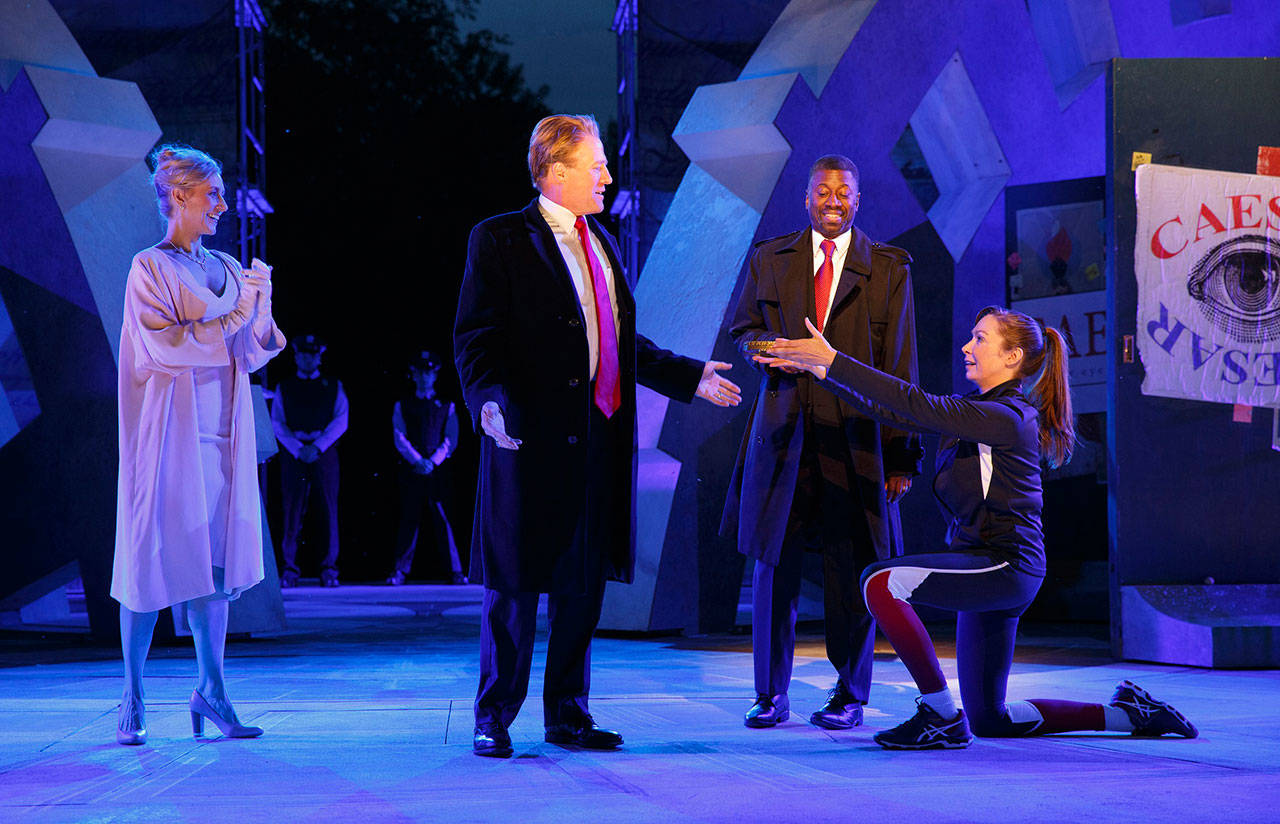By The Herald Editorial Board
Long before and long after 1977 when neo-Nazis sought to march in a predominately Jewish neighborhood in Skokie, Illinois, Americans have struggled with where to draw the line on freedom of speech, particularly speech that offends.
But then speech that doesn’t offend at least a few people wouldn’t require the protection of the U.S. Constitution.
Events this weekend and Monday morning may help bring some clarity to the debate, though it may never fully resolve it, even with the guidance of a unanimous Supreme Court.
Justices on Monday overturned language in a 71-year-old law that barred trademark registration of a name that disparages or holds in contempt people, institutions, beliefs or national symbols. The case was brought by an Asian American man, Simon Tam, who in 2011 sought to trademark the name of his rock band, The Slants, turning an offensive term for Asians on its head and make it a statement of pride.
The federal Patent and Trademark Office told Tam he was free to name his band as he pleased, but the law prevented it from offering him copyright and trademark protection on the name. The case also had a direct bearing on a similar case: The office in 2014 informed the NFL’s Washington Redskins that it would not renew trademark protection for the Redskins name because it was offensive to American Indians.
Justices unanimously held that the law infringed on free speech rights, though they differed some in reasoning, the Associated Press reported.
“It offends a bedrock First Amendment principle: Speech may not be banned on the ground that it expresses ideas that offend,” wrote Justice Samuel Alito.
Justice Anthony Kennedy found the law posed the threat of being turned against the speech of those with minority views: “A law that can be directed against speech found offensive to some portion of the public can be turned against minority and dissenting views to the detriment of all,” he wrote and was joined in the opinion by Justices Ruth Bader Ginsburg, Sonya Sotomayor and Elena Kagan.
The court’s decision rightly remands the question of how to respond to speech we might find offensive back to the court of public opinion. The Slants and the Redskins are free to call themselves by any name they please — and make money at the same time. But music lovers and football fans are free to decide if the names will enter into their decision on whether to attend a concert or football game.
If enough fans and others object, certainly the owners of the Redskins — and for that matter the Cleveland Indians and Atlanta Braves — may reconsider; no trademark is worth protecting if people stop buying tickets, jerseys and bobble-heads.
A boycott should have been the response of those who interrupted and rushed the stage of a production of Shakespeare’s “Julius Caesar” this weekend in New York’s Central Park. The play, which features the assassination of the Roman emperor, drew attention because it was set in the present day and Caesar was costumed as President Trump. (By the way, a production in 2012 featured an African American actor as Caesar, costumed as President Obama.)
The allusion to an assassination of Trump offended some. At one of the final performances this weekend, a woman rushed the stage and yelled, “Stop the normalization of political violence against the right,” and, “This is violence against Donald Trump,” The New York Times reported.
In poor taste? Offensive? To many, sure, particularly in light of the shooting of a Republican congressman and others last week at a baseball practice the day before a charity game between Republicans and Democrats.
But, even if offensive, Shakespeare in the park doesn’t rise to the level of “fighting words,” threats or provocations that are meant to incite violence, and the standard that affirmed the Nazis’ right to march swastikas through Skokie (though they backed down and rallied in Chicago, instead).
Those offended by the satire of a Trumpian Caesar also overlook the message in Shakespeare’s cautionary tale about the fate of those who rely on violent or undemocratic means to reach a political end. But that knowledge requires one read or attend the play.
Those opposed to the portrayal of Trump as the Roman emperor were free to protest and make their case to discourage others from attending, just as corporate sponsors were free — if shortsighted and cowardly — to pull their financial support. But freedom of speech can’t include the right to silence, or even interrupt, offensive speech.
As the protester was led off the stage and order returned, the play resumed with the next line, The New York Times reported: “Liberty! Freedom!”
Talk to us
> Give us your news tips.
> Send us a letter to the editor.
> More Herald contact information.

























